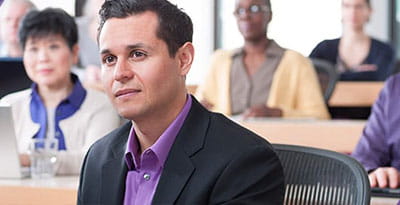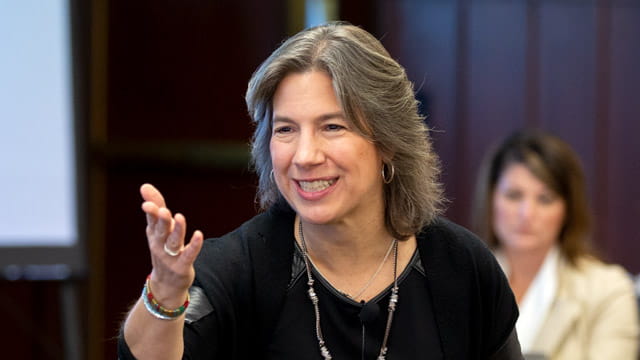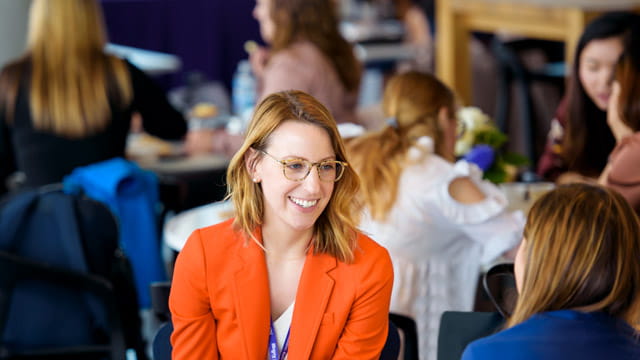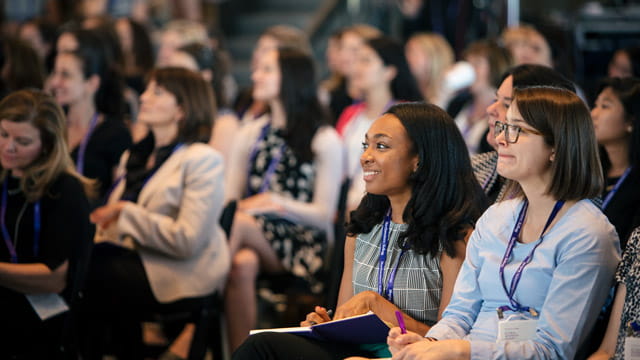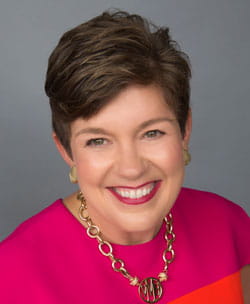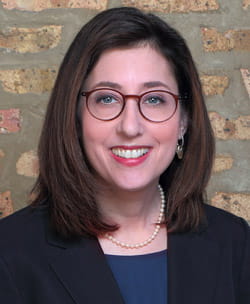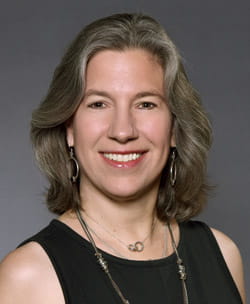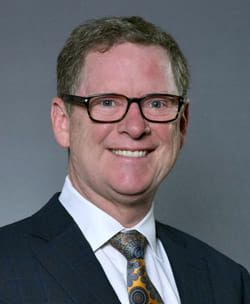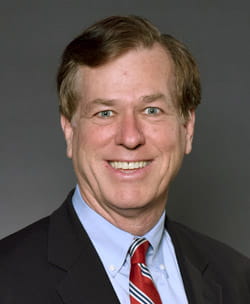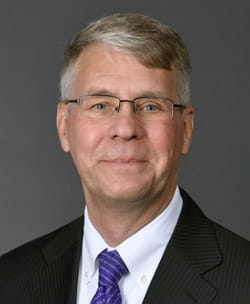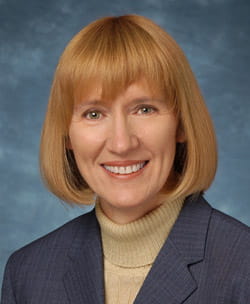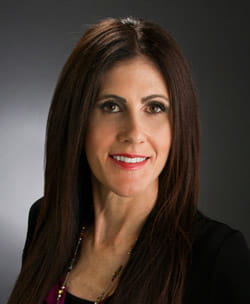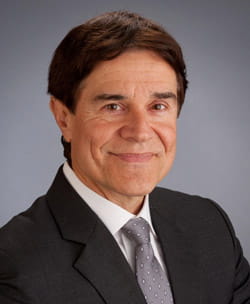Kellogg Center for Executive Women

Welcome to the Kellogg Center for Executive Women
Unlocking the potential of women executives at the highest levels of corporate leadership
The Kellogg Center for Executive Women, founded in 2001, was the first center of its kind focused on developing senior women to help them advance to the C-suite and boardroom. We provide women with powerful connections, heightened visibility and customized programs that address the unique challenges facing executive women. At the same time, we work to expand corporations’ perspectives and options for utilizing the talent of their female executives.
Our programs provide participants with an edge in their careers by diving deep into core leadership skills like decision-making, negotiations, emotional intelligence, change management and individual leadership branding.
Leveraging the renowned research expertise and educational resources of the Kellogg School of Management at Northwestern University, the Kellogg Center for Executive Women is working to transform the corporate landscape. The Center serves as an unparalleled source of knowledge and support for senior-level women through:
- Education to enhance management and leadership capabilities
- Advocacy to broaden corporate perspectives and expand opportunities
- Networking to create powerful connections and heightened visibility
- Research-based initiatives to address the unique challenges women face
At the Kellogg Center for Executive Women we help women break through the barriers that have historically impeded their career development and empower them to take their place at the highest levels of corporate leadership.
Kellogg Center for Executive Women Program Offerings
Within a highly collaborative and academically rigorous environment, the center offers three multifaceted learning opportunities for individual development and leadership growth to prepare bright female leaders to advance to the highest levels of an organization.
Sessions are led by world-class Kellogg faculty and leading practitioners. Content is delivered in an interactive setting, leveraging simulations, role plays and discussion to provide participants with an opportunity to build relationships, learn and test new ideas collaboratively, and receive critical, constructive feedback from faculty and peers.
Kellogg Center for Executive Women Leadership
Kellogg Center for Executive Women Faculty
Clinical Professor of Strategy
Michael S. and Mary Sue Shannon Clinical Endowed Professor
Wendell Hobbs Professor of Managerial Politics
Professor of Managerial Economics & Decision Sciences
Chair of Personnel Committee
Glen Vasel Professor of Finance
Director of the Heizer Center for Private Equity and Venture Capital
J. Jay Gerber Professor of Dispute Resolution & Organizations
Professor of Management & Organizations
Director of Kellogg Team and Group Research Center
Professor of Psychology, Weinberg College of Arts & Sciences (Courtesy)
Richard L. Thomas Professor of Leadership and Organizational Change
Co-Director, Northwestern Institute on Complex Systems (NICO)
Professor of Industrial Engineering and Management Sciences, McCormick School (Courtesy)
Professor of Sociology, Weinberg College (Courtesy)
Database of Women Directors
The Kellogg Center for Executive Women also has a database for alumnae of the Women’s Director Development program that helps connect program alumnae to open executive board positions.
Business Cases Featuring Female Protagonists
Business school cases currently utilized in the classroom (both MBA and Executive Programs) reflect an under-representation of women on Boards of Directors, as CEOs and in senior officer positions. The predominant portrayal of men in top management positions impresses a subconscious belief that women should not be in senior levels. In an effort to change this, the Center fosters the writing of new business cases with female protagonists to use in the classroom. Copies of these cases may be purchased by contacting the Kellogg Center for Executive Women.
Copies of these and other similar cases may be purchased by contacting the Kellogg Center for Executive Women.
Laura Rodriguez at OutSite: Playing the “Game” of Professional Development
By Gail Berger, 2022
Gender; Interpersonal skills; Leadership; Leadership and managing people; Leadership development; Leadership presence; Leadership qualities; Leadership styles; Management; Mentoring
This case provides an account of Laura Rodriguez's career trajectory and the obstacles she has faced and still faces as a female-identifying professional. Laura is portrayed as a hardworking, achievement-oriented individual who has excelled academically and professionally. But as she reaches the middle of her career, she is challenged in attaining her career objectives and does not receive a critical advancement opportunity given to her less-qualified male colleague. Part A of the case describes Laura's pre- and post-MBA career and the beginning of building her family. In Part A, she also learns she was not selected to participate in her firms Leadership Pathway advancement program. Part B of the case describes Laura's leadership self-assessment and the development approaches she is contemplating.
Look Before You Leap: Considering a Job Offer With an Early-Stage Company
By Steven Rogers, Sachin Waikar and Scott Whitaker, 2007
Entrepreneurship, Organizational Behavior
In the fall of 2007 a senior director of product marketing at Qwest in Denver, Colorado, gets an offer to work for an entrepreneurial high-growth venture. The vision is for greater wealth, accelerated business opportunity, more thrill on the job, and faster path to leadership by pursuing a position with a start-up firm. Kiva Allgood has management responsibility in her current position (e.g., manages a high-budget portfolio), with compensation of $145,000 in salary and incentive bonuses up to 100% of base salary. She realizes that she is not prepared for the negotiation because she has only negotiated job offers within large firms. She needs to know what many of these entrepreneurial finance terms mean and to understand whether she is being offered terms and amounts commensurate with the value she feels she will bring to the entrepreneur.
She also needs to understand her opportunity cost and the expected value of her options: staying with the current job, starting her own venture, or taking this offer at the entrepreneurial venture.
She had no idea there were also so many additional, non-financial factors to take into consideration. With her future on the line, she needs to work through the numbers fast. The entrepreneur gave her five days to come back with a counter offer, which he considered a generous amount of time.
In evaluating these questions, students will take Allgood’s point of view. The case is based on a real job offer to a real person named Kiva Allgood. The entrepreneur and his firm are fictitious in order to heighten the issues in this situation.
Sara Lee: A Tale of Another Turnaround
By James B. Shein and Loredana Yamada, 2005
Entrepreneurship, Management, Marketing, Operations, Strategy
Sara Lee Corporation's acquisition binge in the 1980s and 1990s left the company with a portfolio of vastly different businesses operating independently of one another. It had experienced rapid top-line growth, but at the same time cash flows had declined. Sara Lee ignored both internal and external warning signs until a major transformation plan became necessary. This case examines the company's multiple turnaround attempts. The learning objective of the case is to analyze "early stage" turnaround efforts by examining how the company found itself in decline, evaluating its attempts to improve its performance, and assessing the turnaround plan.



